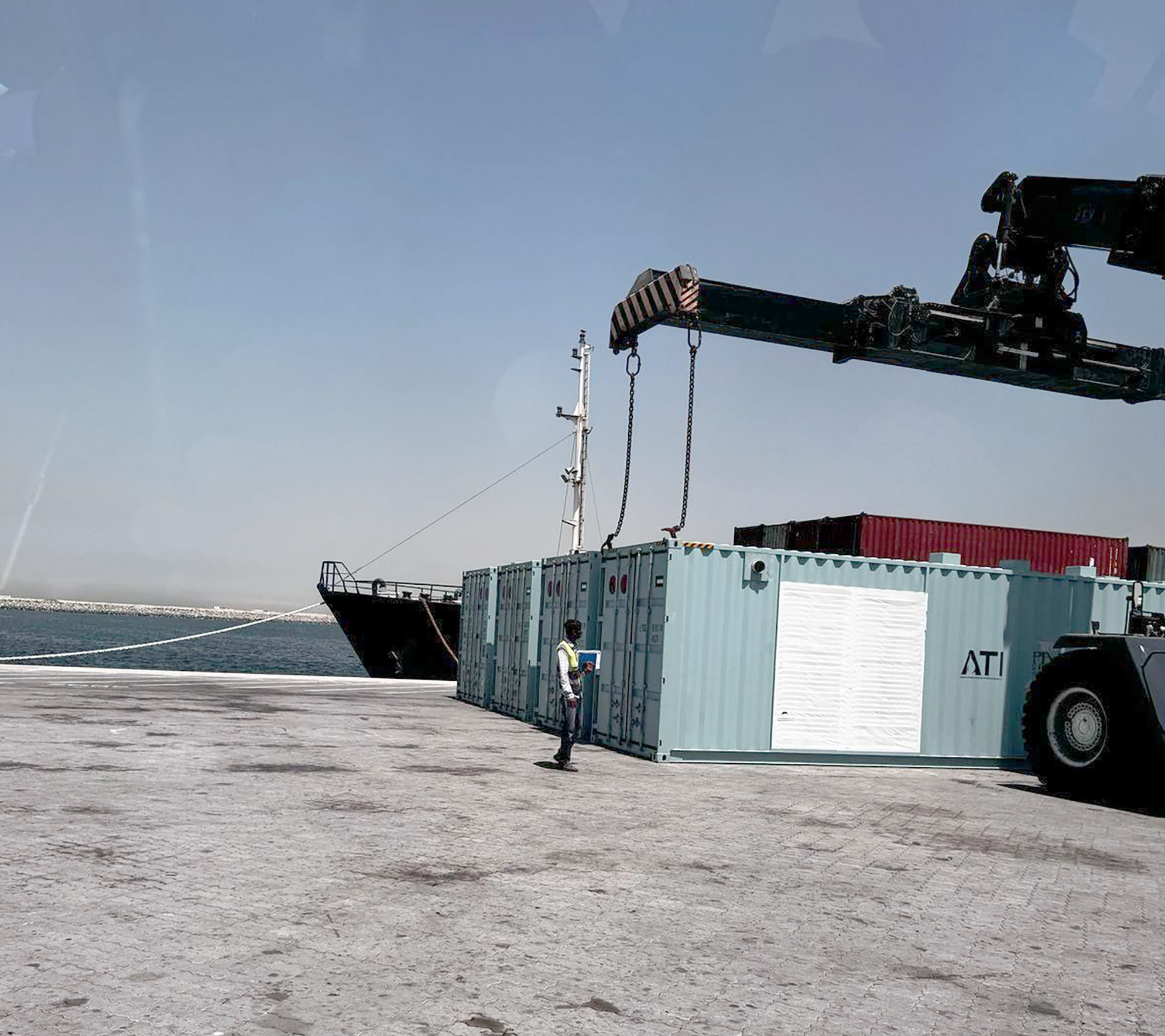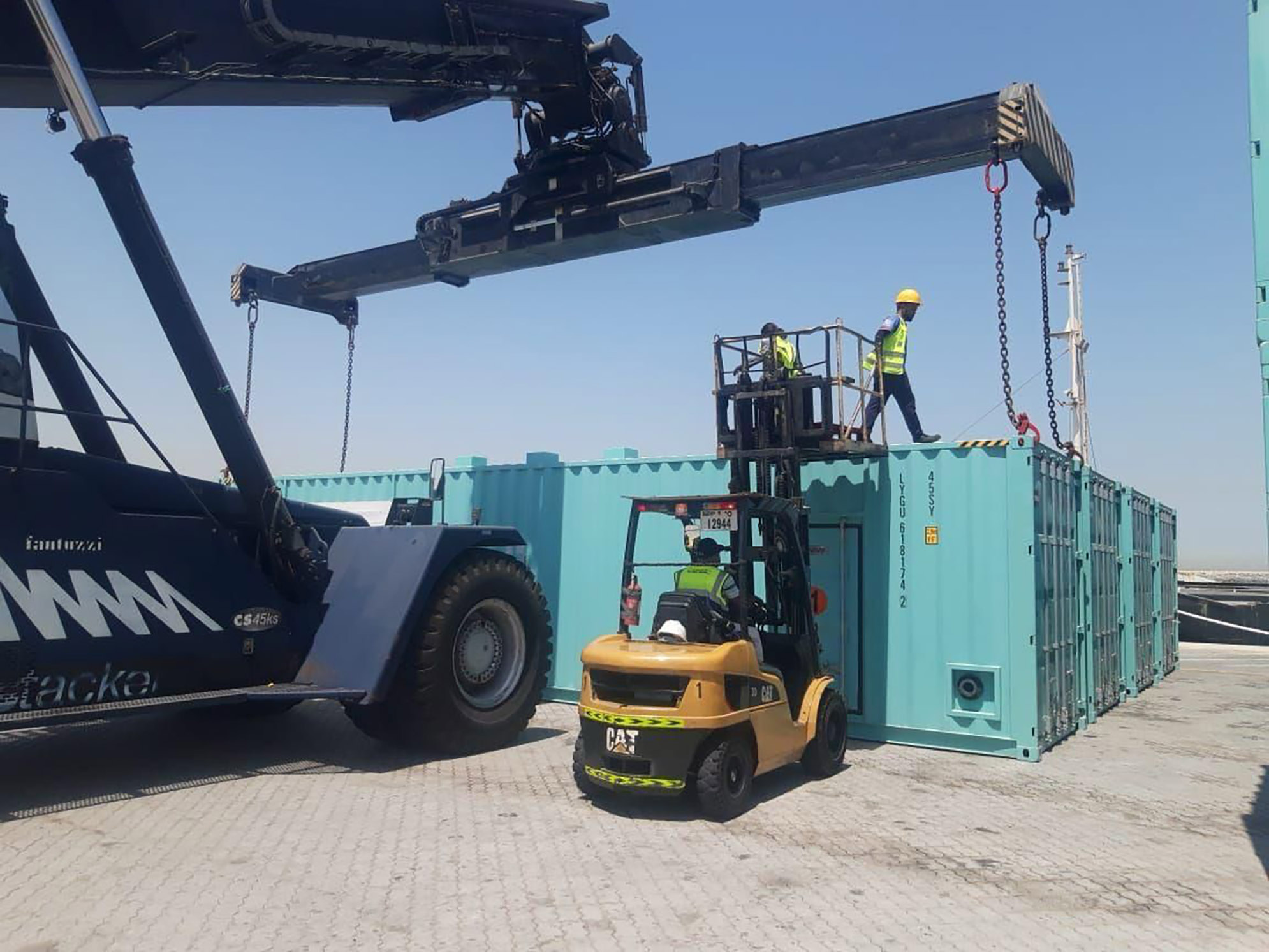Officials in Paphos concerned and puzzled by decision to only allocate units to Limassol
Officials from the Paphos district were left upset and perplexed by the government’s decision to only use the mobile desalination units which are set to be delivered to Cyprus from the United Arab Emirates in the Limassol district.
“It is a very concerning and puzzling turn of events and we are trying to fathom what went on. We are not at all satisfied,” Akamas Mayor Marinos Lambrou told the Cyprus Mail.
MPs representing the Paphos district were also less than impressed by the move, with Disy’s Charalambos Pazaros and Akel’s Valentinos Fakontis both informing the CyBC of their distaste.
Pazaros accused Agriculture Minister Maria Panayiotou of being “disingenuous” in only allocating the units to Limassol.
Meanwhile, fellow Paphos MP Chrysanthos Savvides, of Diko, called for a re-think of the whole matter and said that “preferential treatment is no solution”.
Lambrou has been sounding the alarm over adequacy of water supply, particularly in the high-tourism area of Peyia, as well as for farmers in nearby Kissonerga, for months. Peyia’s population surges from 7,000 to around 20,000 in the summer and residents of the community have suffered through periodic summer water cuts for years.
Meanwhile, farmers in the area have received notices informing them that as of Monday, only permanent cultivations are to receive water, and even those are to receive water just twice per week.
Limassol district governor Socates Metaxas was keen to defend the units’ placement, telling the Cyprus News Agency that they are being installed at their chosen location per request of experts from the UAE, who are responsible for their running.
The city’s mayor Yiannis Armeftis, meanwhile, said that “due to the urgent [need], the prospective area was surveyed and deemed to possess suitable provisions in place” which facilitate the units’ being put into immediate operation.
The agriculture ministry’s permanent secretary Andreas Gregoriou had earlier said that all the units would be installed near the village of Moni, to the east of Limassol.

Panayiotou had announced earlier this week that the desalination units would arrive in Cyprus before the end of this month, and that they would begin providing water as soon as next month.
She also announced that the government is to construct two new permanent desalination units, which are expected to be completed and enter service within the next two years.
Those two units, she said, will be powered by renewable energy sources, and will provide a total of 120,000 cubic metres of water per day.
She added that this quantity will, if provided, “definitively solve” Cyprus’ water issue.
Additionally, she spoke of how desalination will now become a permanent fixture of for the island.
“Desalination will be used continuously, whether it rains or not. It is a conscious decision to ensure that there will be water in the reservoirs for our farmers,” she said, while also making reference to the €15.5 million provided to them for losses suffered due to water shortages.
She also pointed out that around 30 per cent of her ministry’s budget at present is spent on water-related matters.
The planned arrival of the desalination units from the UAE was announced by President Nikos Christodoulides last month, with government spokesman Konstantinos Letymbiotis later saying there will be “no risk” of there being any water cuts in Cyprus this summer as a result of the units’ forthcoming arrival.
“Units with a capacity of 15,000 cubic metres per day, corresponding to our needs, will arrive in time, so that the Republic of Cyprus is not at risk of water cuts,” he said.
Christodoulides had stressed that the units will be provided “free of charge”, a fact he said “underlines the importance of relations in the context of the country’s foreign policy, and in matters of internal policy”.
However, not everyone has been impressed by the government’s direction of travel with regard to the issue of water.
Coastal engineer Xenia Loizidou earlier slammed the government’s plan to import mobile desalination plants as an “incoherent panic solution”.
She said the units are “of course a solution”, but that “to really solve the water problem, the first thing which needs to be done is to invest in infrastructure and proper management of uses”.
This, she said, must entail there being “no lawns and golf courses” and an “adaptation” of crops to plant those which are less water intensive.






Click here to change your cookie preferences